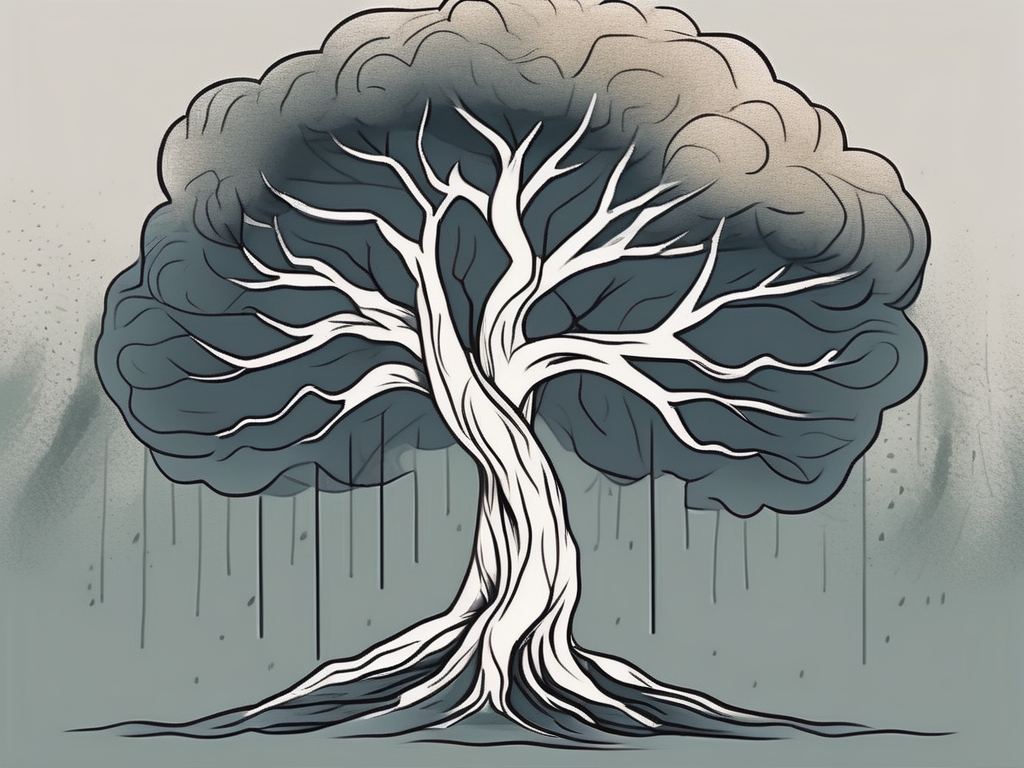Stoicism, a philosophy that originated in ancient Greece, has continued to captivate individuals throughout history. It offers a unique perspective on life and has been known to provide solace during challenging times. One of the core tenets of Stoicism is the idea of embracing fate, accepting the circumstances that life throws our way. In this article, we will delve into the philosophy of Stoicism and explore how it can help us in embracing our fate.
Understanding the Philosophy of Stoicism
Before we dive into the concept of fate, it’s essential to have a clear understanding of Stoicism as a whole. Stoicism is a philosophy that encourages individuals to focus on what they can control and let go of what they cannot. It emphasizes the importance of living in accordance with nature and embracing virtues such as wisdom, courage, and justice.
Stoicism originated in ancient Greece and was further developed by Roman philosophers such as Seneca, Epictetus, and Marcus Aurelius. It gained popularity during the Hellenistic period and continues to influence modern philosophy and psychology.
The Stoics believed that the key to a fulfilling life lies in understanding and accepting the natural order of the universe. They recognized that external events and circumstances are beyond our control, but our thoughts, attitudes, and actions are within our power. By focusing on what we can control and accepting what we cannot, Stoics aimed to achieve inner peace and tranquility.
The Basic Principles of Stoicism
At the core of Stoic philosophy are a few fundamental principles. Firstly, Stoics believe that the only things within our control are our thoughts, attitudes, and actions. External events and circumstances, on the other hand, are beyond our control. This principle, known as the dichotomy of control, forms the foundation of Stoic ethics.
Secondly, Stoicism encourages individuals to accept the natural order of the universe, recognizing that everything happens for a reason. They believed that the universe is governed by a divine intelligence, often referred to as the Logos, which determines the course of events. By accepting this cosmic order, Stoics aimed to find meaning and purpose in their lives.
Lastly, Stoics emphasize the importance of living in accordance with reason and virtue, rather than being driven by impulses and desires. They believed that virtue is the highest good and that by cultivating wisdom, courage, justice, and other virtues, individuals can lead a virtuous and fulfilling life.
Stoicism’s View on Emotions and Control
When it comes to emotions, Stoicism takes a unique approach. Stoics believe that emotions are judgments that we make about external events. According to their philosophy, we have the power to control our emotions by examining and challenging our judgments. By doing so, we can achieve emotional tranquility, even in the face of adversity.
Stoics recognized that negative emotions such as anger, fear, and sadness often arise from our irrational judgments and attachments to external things. By practicing self-reflection and cultivating rationality, Stoics aimed to free themselves from the grip of destructive emotions and achieve a state of emotional well-being.
Furthermore, Stoics believed that by accepting the inevitability of change and impermanence, we can find serenity amidst life’s uncertainties. They encouraged individuals to embrace the concept of amor fati, which means “love of fate.” By embracing whatever life throws at us, whether it be joy or sorrow, success or failure, Stoics believed that we can find inner peace and live in harmony with the natural order of the universe.
Stoicism and the Concept of Fate
Now that we have a solid understanding of Stoicism, let’s explore its connection to fate.
The Stoic Belief in Predetermined Destiny
In Stoicism, there is a belief in predetermined destiny. Stoics argue that everything that occurs in the universe is part of a grand plan, set in motion long before we were born. This idea might be unsettling to some, as it implies that our lives are already predetermined. However, Stoics find comfort in the notion that everything that happens is ultimately for the best, even if we don’t immediately see it.
When we consider the vastness of the universe and the intricate web of cause and effect, it becomes easier to comprehend the Stoic belief in predetermined destiny. Every action, every event, and every decision is interconnected, leading to a chain of events that unfolds according to a predetermined plan. This cosmic order, known as the Logos, governs the universe and guides the course of our lives.
Stoics view the Logos as a rational and benevolent force, ensuring that everything happens for a reason. While it may be challenging to accept that our lives are predetermined, Stoics argue that this belief allows us to find meaning and purpose in every situation. By recognizing that there is a greater plan at work, we can approach life’s challenges with a sense of calm and understanding.
Acceptance of Fate in Stoic Teachings
In embracing fate, Stoics emphasize the importance of accepting the twists and turns of life with grace and equanimity. Rather than resisting or railing against our circumstances, Stoicism encourages us to embrace our fate and find meaning within it. By accepting our fate, we can learn to navigate the ups and downs with a sense of serenity.
Acceptance does not mean resignation or passivity. Instead, it involves acknowledging the reality of our situation and making the most of it. Stoics believe that by accepting our fate, we can focus our energy on what we can control and make the best choices in any given circumstance.
Furthermore, Stoicism teaches us that our perception of events is crucial in shaping our experience of them. By reframing our perspective and viewing every situation as an opportunity for growth and self-improvement, we can transform adversity into a catalyst for personal development.
Stoics also emphasize the importance of distinguishing between what is within our control and what is not. While we cannot control external events or the actions of others, we have complete control over our own thoughts, attitudes, and actions. By directing our focus inward and cultivating virtues such as wisdom, courage, and self-discipline, we can navigate the unpredictable nature of fate with resilience and strength.
Ultimately, Stoicism teaches us that fate is not something to be feared or resisted but rather embraced as an integral part of the human experience. By accepting our predetermined destiny and approaching life with equanimity, we can find peace and fulfillment in the face of life’s uncertainties.
The Intersection of Stoicism and Fate
It is at the intersection of Stoicism and fate that we truly see the power of this philosophy in action.
Stoicism, an ancient Greek philosophy founded by Zeno of Citium, teaches individuals to live in accordance with nature and accept the inevitable. It emphasizes the importance of cultivating inner strength and resilience in the face of life’s uncertainties. By embracing the concept of fate, Stoics believe that we can find peace and tranquility in a world filled with chaos and unpredictability.
How Stoicism Encourages Acceptance of Fate
Stoicism encourages individuals to view every situation as an opportunity for growth and self-improvement. By accepting our fate, we can focus our energy on the aspects of life that are within our control. This acceptance does not imply passivity or resignation, but rather a recognition of the limits of our influence. Stoics believe that by aligning our desires and expectations with the natural order of the universe, we can find contentment and fulfillment.
When faced with adversity or setbacks, Stoics remind themselves of the impermanence of external circumstances. They understand that life is filled with ups and downs, and that it is our response to these fluctuations that truly matters. By embracing fate, Stoics learn to detach themselves from the outcomes of their actions and instead focus on the process and the virtues they cultivate along the way.
Stoics also find solace in the notion that everything happens for a reason. They believe that the universe is governed by a rational and benevolent force, often referred to as the Logos. This Logos, according to Stoic philosophy, guides the events of our lives and ensures that everything unfolds according to a greater plan. By accepting this cosmic order, Stoics find comfort in the knowledge that even the most challenging experiences serve a purpose in their personal development.
The Role of Personal Responsibility in Stoicism and Fate
Stoicism places great emphasis on personal responsibility. While we may not have control over external events, we do have control over our own actions and attitudes. Stoics believe that true freedom lies in our ability to choose our response to any given situation. By taking responsibility for our choices and responses, we can navigate our fate with dignity and integrity.
Stoics understand that blaming external circumstances or other individuals for our misfortunes only leads to frustration and resentment. Instead, they advocate for self-reflection and self-improvement. By focusing on what is within our control, we can make the most of any situation and find meaning even in the face of adversity.
Personal responsibility, in the context of Stoicism, also extends to our moral character. Stoics believe in the importance of cultivating virtues such as wisdom, courage, justice, and temperance. These virtues serve as guiding principles in our actions and decisions, enabling us to live a life of integrity and moral excellence. By taking responsibility for our character and striving to embody these virtues, we can navigate the complexities of fate with grace and honor.
In conclusion, the intersection of Stoicism and fate offers a powerful framework for navigating the uncertainties of life. By embracing the inevitability of fate and taking personal responsibility for our choices and attitudes, we can find peace, resilience, and fulfillment. Stoicism teaches us to view every situation as an opportunity for growth and self-improvement, and to cultivate virtues that enable us to face any challenges that come our way. Through the lens of Stoicism, fate becomes not a burden to bear, but a path to wisdom and enlightenment.
Practical Applications of Stoicism in Daily Life
Now that we have explored the theoretical aspects of Stoicism and fate, let’s look at some practical ways to apply these principles in our daily lives.
Stoicism, with its emphasis on self-control and inner peace, offers numerous practical applications that can help us navigate the complexities of life. By incorporating Stoic principles into our daily routines, we can cultivate a mindset that allows us to face challenges with resilience and maintain our emotional well-being.
Using Stoicism to Cope with Uncontrollable Circumstances
Life is full of uncertainties and uncontrollable circumstances. Stoicism teaches us to shift our focus from what we cannot control to what we can control—our thoughts and actions. By embracing this philosophy, we can develop resilience and adaptability, allowing us to face any situation with a sense of inner calm.
One practical application of Stoicism in coping with uncontrollable circumstances is practicing the art of acceptance. Stoics believe that by accepting the things we cannot change, we free ourselves from unnecessary suffering. Instead of dwelling on what could have been or what should be, we redirect our energy towards finding solutions and making the best of the situation at hand.
Furthermore, Stoicism encourages us to cultivate a mindset of gratitude. By focusing on the things we have rather than the things we lack, we can shift our perspective and find contentment in the present moment. This practice not only helps us cope with adversity but also enhances our overall well-being.
Stoicism as a Tool for Emotional Resilience
Emotional resilience is a valuable skill in navigating the challenges of life. Stoicism teaches us to examine our emotions and question the validity of our judgments. By doing so, we can cultivate emotional resilience and maintain our inner peace, regardless of the external circumstances.
One practical application of Stoicism in developing emotional resilience is practicing negative visualization. This technique involves imagining worst-case scenarios and preparing ourselves mentally for them. By confronting our fears and anxieties in a controlled manner, we become better equipped to handle unexpected challenges when they arise.
In addition, Stoicism encourages us to practice self-reflection and introspection. By regularly examining our thoughts and emotions, we can identify any irrational beliefs or negative patterns that may be hindering our emotional well-being. Through this process, we can develop a greater understanding of ourselves and make conscious choices that align with our values.
Furthermore, Stoicism emphasizes the importance of maintaining a sense of perspective. By recognizing that our emotions are often a result of our own judgments and interpretations, we can challenge and reframe our thoughts to achieve a more balanced and rational perspective. This practice allows us to respond to difficult situations with clarity and composure.
In conclusion, Stoicism offers practical tools that can be applied in various aspects of our daily lives. By incorporating Stoic principles such as acceptance, gratitude, negative visualization, self-reflection, and maintaining perspective, we can cultivate resilience, emotional well-being, and a greater sense of inner peace. So, let us embrace these teachings and embark on a journey of personal growth and fulfillment.
Criticisms and Counterarguments
Potential Drawbacks of Embracing Fate through Stoicism
While Stoicism offers many benefits, it’s important to acknowledge any potential drawbacks. Critics argue that embracing fate might lead to a passive acceptance of unfavorable circumstances. They claim that instead of taking action to change our circumstances, Stoicism promotes a resigned attitude. However, Stoics would counter that by accepting our fate, we gain the clarity to discern which aspects of our lives we can change and which we cannot.
Alternative Philosophical Perspectives on Fate
While Stoicism provides a unique lens through which to embrace fate, it is not the only philosophical perspective. Other schools of thought, such as existentialism or determinism, offer different interpretations of fate. Each philosophy provides its own set of tools and perspectives for navigating the complexities of life and accepting our destiny.
In conclusion, Stoicism offers a compelling approach to embracing fate. By focusing on what is within our control and accepting the natural order of the universe, we can find peace and meaning in the face of life’s challenges. Stoicism teaches us not to resist our fate, but rather to embrace it and use it as a catalyst for personal growth and self-improvement. It invites us to examine our thoughts and emotions and take responsibility for our own actions. So, the next time life throws you a curveball, consider adopting a Stoic mindset and watch how it empowers you to navigate the path ahead with grace and resilience.












